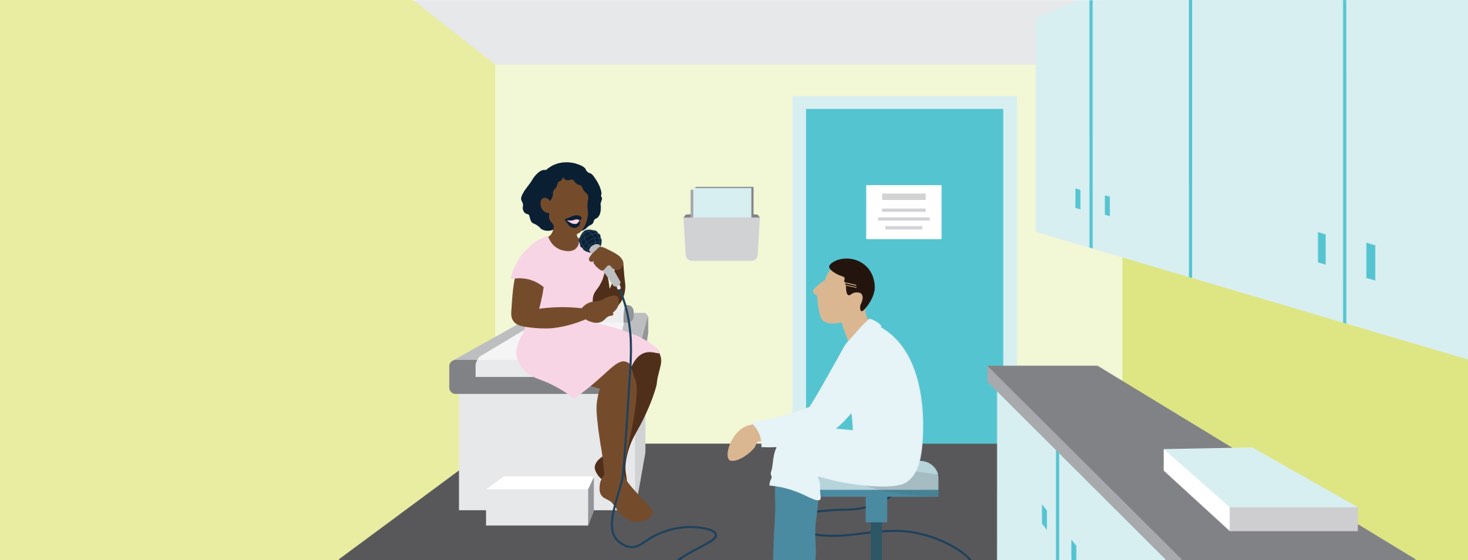Things Patients Want Rheumatologists to Know
I recently read an interesting article on Creaky Joints' website: "20 Things Arthritis Patients Wish Rheumatologists Knew." For the article, Creaky Joints asked several people with arthritis about what they wish their rheumatologists would do differently.
The article's "20 things" is a list that touches on many issues regarding RA and the patient-rheumatologist relationship: exercise, bedside manner, nutrition, mental health, and prescription medications - to name several.
Some tips for rheumatologists from patients
The following is a shortened version of the original list, with me choosing five of the list items to discuss.
1. Don't rush my appointment.
Having a rheumatologist who is patient and takes time to actually listen to you at each appointment (at anytime, really!) is crucial. RA is a complex and complicated disease that affects each person differently, which means there are usually a lot of questions and issues that come up when you have this illness.
My rheumatologist is incredibly patient with me, which I appreciate tremendously. I know that he is constantly busy and rushed and overworked, yet he always finds time to sit patiently with me during each appointment and answer all of my questions. If your doctor can't or won't do this, then maybe it's time to find a new one who will.
2. Tell me to keep a journal before I come in.
I think writing in a journal and keeping track of my symptoms and medications and anything else that pertains to my RA and health is a great idea. The main problem I have with this, however, is remembering to do it and to do it regularly.
And actually, now as I stop to think of it, I don't think my rheumatologist and I have ever discussed me keeping an RA or health journal as part of my treatment. Is it something that would be beneficial to him and to help him with treating me? That's a good question that I should ask at my next appointment, I think.
3. Give me some realistic diet and exercise advice.
I know I'm overweight and that losing weight would greatly help my RA and overall health. Despite recognizing this, it's really hard to stick to a healthy diet and exercise regularly when you have RA. I mean, REALLY HARD. Why? The simple answer is that dealing with pain and sickness every day doesn't really put a person in the mood to exercise or eat healthy. When in pain and not feeling well, our natural instinct is to lie down and rest and basically turn into couch potatoes. And, when I'm not feeling well, guess what kinds of food I crave? Yep--carbs, carbs, carbs! Comfort food. Comfort anything.
If rheumatologists aren't already aware of these challenges (they should be!), then they need to hear from patients what it's really like for those of us with RA who are genuinely trying to develop good nutrition and exercise habits. If they can't offer helpful advice and support, then they need to refer us to someone who can, such as a nutritionist, an integrative medicine doctor, or a weight management clinic.
4. Don't judge me.
Finding a rheumatologist who is non-judgmental, as well as empathetic and understanding, is really important. The first rheumatologist I went to when I was first diagnosed with RA was basically the opposite of my current doctor. He was extremely judgmental, condescending, arrogant, impatient, and not supportive.
Unfortunately, it took me 10 years to finally "fire" him and move onto someone who better fits my needs. And that person I moved onto, which is my current rheumatologist, has turned out to be a wonderful fit. I never feel judged or condescended to when I talk to him or ask him questions. If you're feeling unfairly judged or criticized by your doctor, know that it's your right to "fire" him/her and find someone who respects you as a patient and a person.
5. Do a mental health check-up.
Taking care of your mental health, in addition to your RA and physical health, is probably something that many people forget to do. Or, they don't know how to do it. I'm willing to bet, though, that the majority of people who have RA also struggle with mental health issues, such as depression and anxiety. Having depression and anxiety symptoms is completely understandable if you also live with chronic pain and chronic illness. It's a reality for most of us, I'd say.
I would also argue that RA is even harder to cope with mentally and emotionally rather than physically sometimes. If you know firsthand how severe and bone-aching terrible the pain of RA can be, you might not believe that statement. But living with RA can be a deeply devastating, traumatic, and anxiety-filled experience. And because of this, it's crucial for RA patients to understand that their mental health needs are important and to know how to get help and support if needed.
I think it's a great idea for rheumatologists to check in with their patients about their mental health and how they're doing. A person's mental health can greatly affect their RA and vice versa and it should be a part of one's treatment plan.

Join the conversation